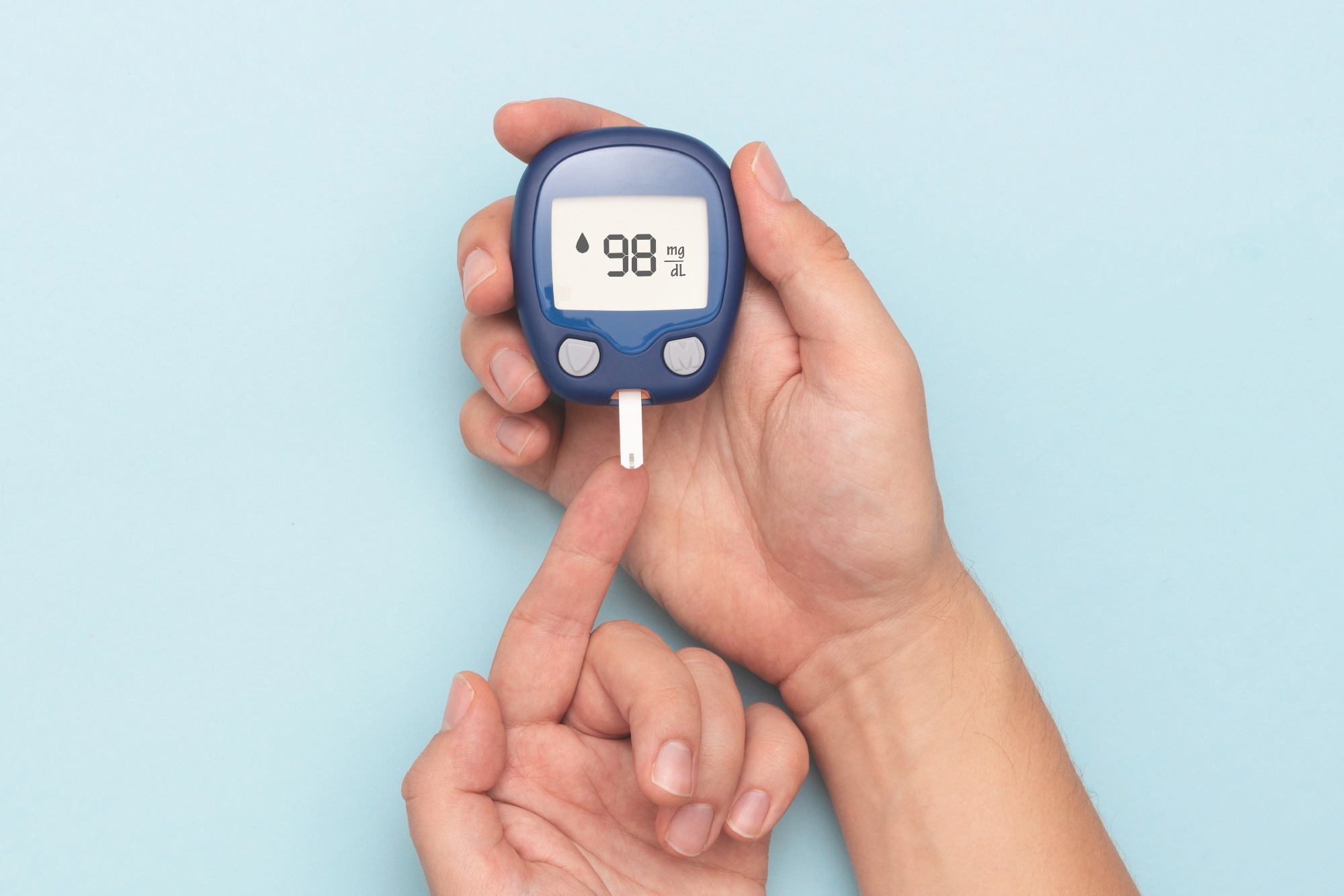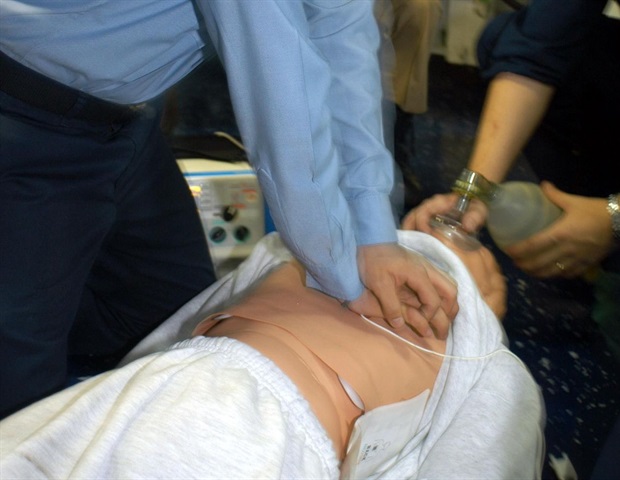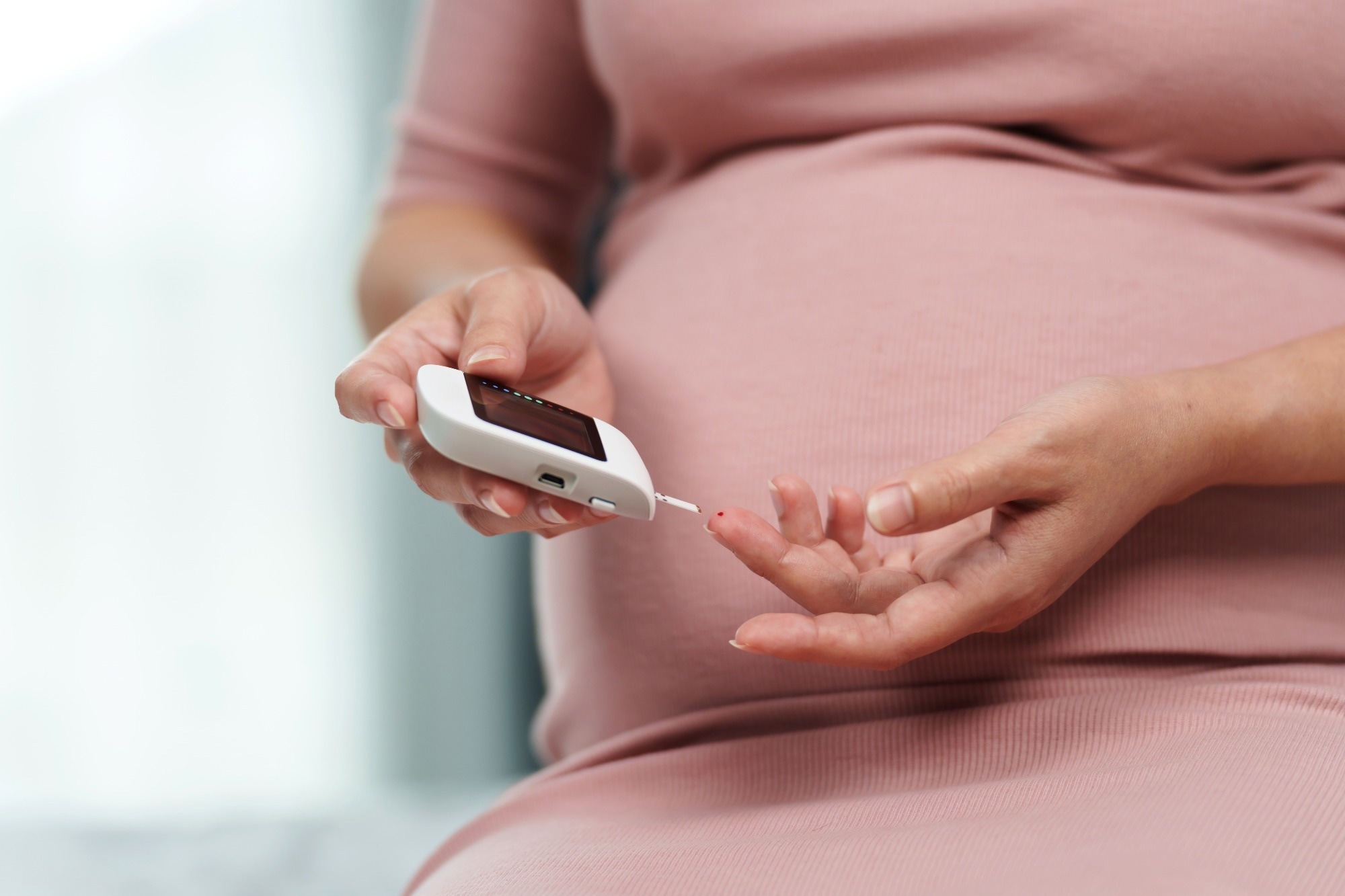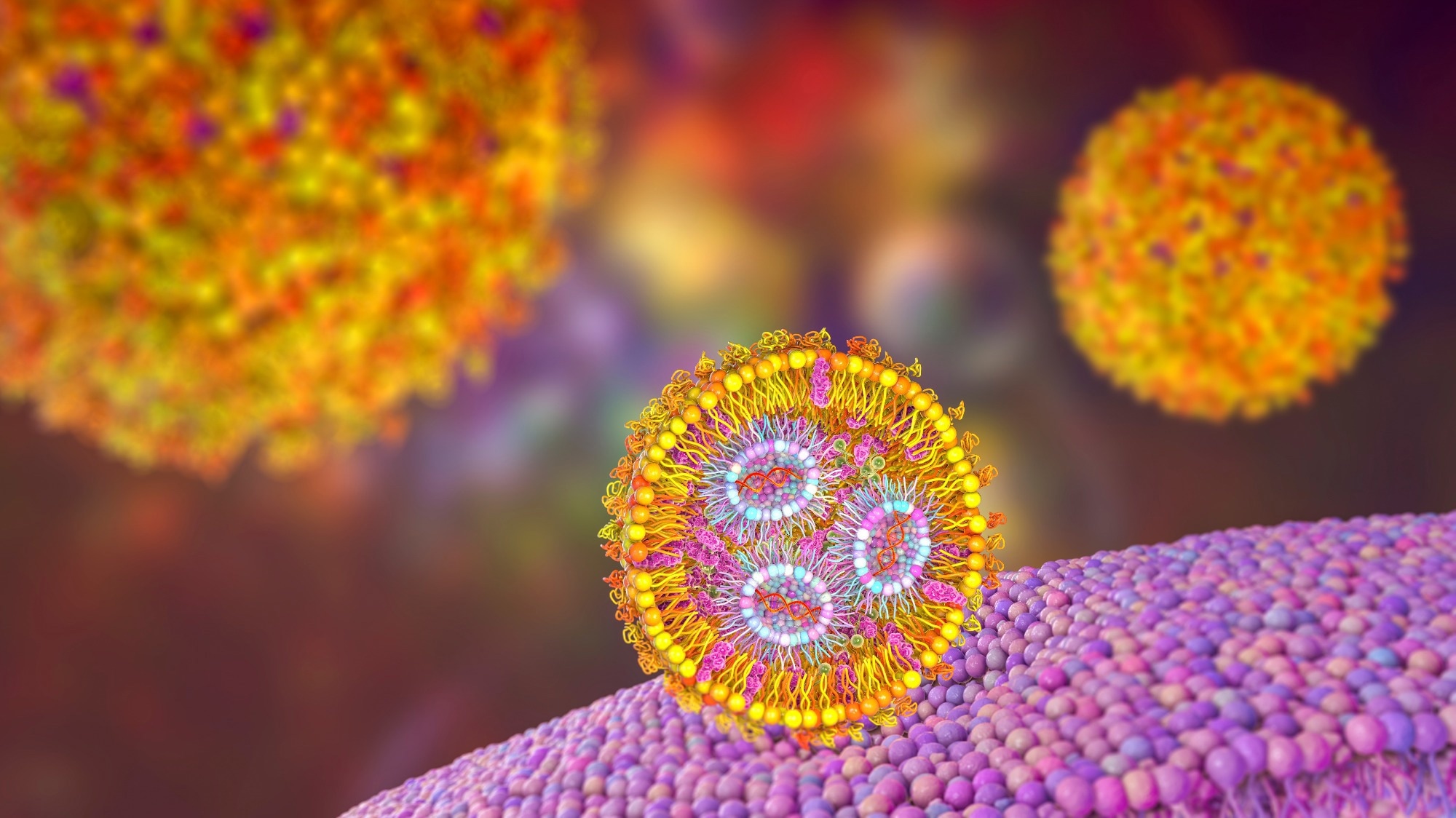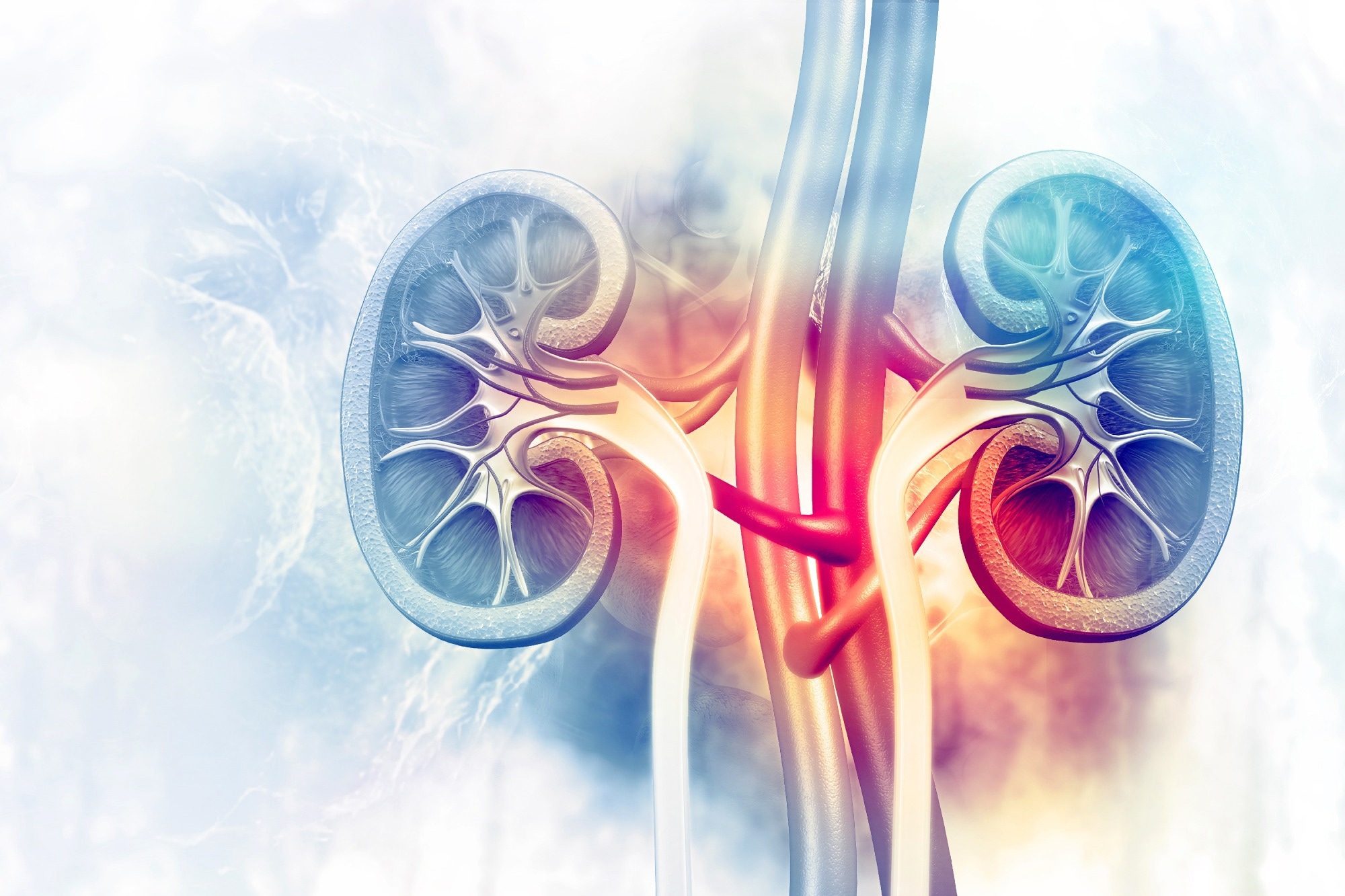In a recent study published in the journal BMC Medicine, researchers estimated the prevalence of new-onset diabetes following coronavirus disease 2019 (COVID-19).
Notwithstanding the numerous vaccines and antiviral therapeutics against severe acute respiratory syndrome coronavirus 2 (SARS-CoV-2), the COVID-19 pandemic continues to threaten public health and the economy, with more than 634 million cases and over 6.59 million deaths to date. The presence of comorbid conditions may affect the clinical outcome of individuals with COVID-19.
Prior studies indicate that diabetes mellitus (DM) increases the risk of severe COVID-19, in-hospital death, and acute respiratory distress syndrome. Notably, a meta-analysis concluded that new-onset diabetes is frequently observed in COVID-19 patients. Likewise, the incidence of newly-diagnosed type 1 diabetes increased in children after COVID-19.
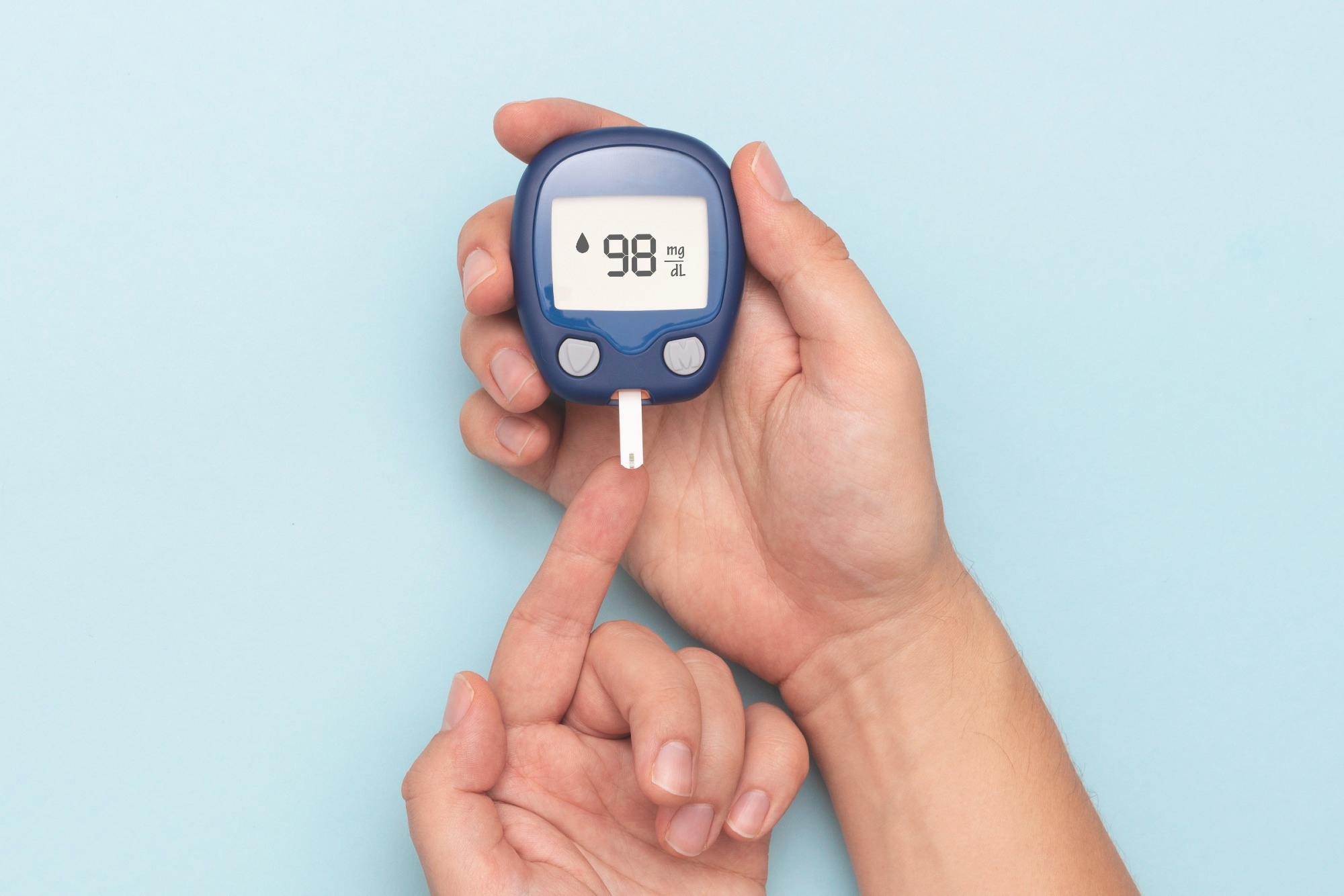 Study: Risk for newly diagnosed diabetes after COVID-19: a systematic review and meta-analysis. Image Credit: Proxima Studio / Shutterstock
Study: Risk for newly diagnosed diabetes after COVID-19: a systematic review and meta-analysis. Image Credit: Proxima Studio / Shutterstock
About the study
In the current study, researchers systematically reviewed and meta-analyzed the literature to assess the prevalence of new-onset diabetes in COVID-19 patients. The Cochrane Central Register of Controlled Trials (CENTRAL), Web of Science, Embase, and PubMed databases were systematically searched for studies with a combination of terms related to SARS-CoV-2/COVID-19 and diabetes without restrictions on language and publication time/year.
Retrospective or prospective cohort studies were eligible for inclusion if 1) the primary exposure was COVID-19, defined as per International Classification of Diseases codes, 2) they reported new-onset diabetes, and 3) they determined relative associations between hospitalized patients and population controls. Case reports/series, commentaries, letters, and reviews were not considered.
The study’s primary outcome of interest was the incidence of new-onset diabetes after infection with SARS-CoV-2 and the risk of developing diabetes relative to controls. Sub-group analyses were performed according to gender, age, diabetes type, and onset time, among others. In addition, the authors conducted two post hoc sub-group analyses involving mild-to-moderate and severe COVID-19 patients.
A standardized spreadsheet was used for extracting data on study design, participant characteristics, the definitions of COVID-19 and DM, covariates, and follow-up duration (in person-years). The risk of bias was determined using the Newcastle-Ottawa scale. The incidence of new-onset diabetes was computed from the reported number of cases with newly diagnosed diabetes and person-years of follow-up.
The rates of diabetes between COVID-19 patients and controls were reported as relative risks along with their 95% confidence intervals. The I2 statistic and Cochran’s Q test assessed heterogeneity between studies.
Findings
The search criteria yielded 7746 articles. After screening, 7543 studies were excluded. After all rounds of screening, including full-text reviews, nine studies were included. Six studies were conducted in the United States (US), two in England, and one in Germany. Seven studies included adults only, one included adolescents only, and one had no age restrictions.
Across selected studies, there were more than four million COVID-19 patients and > 34 million controls. The risk of bias was relatively low in selected studies. The mean follow-up time ranged between 64 and 352 days across studies. Overall, the incidence of new-onset DM per 1,000 person-years of follow-up was 15.53 cases. The relative risk of DM post-COVID-19 was 1.62 compared to controls.
The relative risk of developing type 1 DM was 1.48, and 1.7 for type 2 DM. The annual incidence of diabetes per 1,000 person-years was 3.65 in those younger than 18 years, 15.53 in individuals aged 18-65, and 17.45 among those over 65. There was a statistically significant association between COVID-19 and the risk of developing DM across all age groups.
The incidence rate of new-onset diabetes was 3.14 and 3 among male and female subjects per 1,000 person-years, respectively. The incidence of new-onset diabetes was 2.96% in patients with mild-to-moderate COVID-19, with a 1.48-fold elevated risk relative to controls. In severe COVID-19 patients, the incidence of new-onset diabetes was 11.65%, with more than 1.67-fold increased risk.
Conclusions
In summary, the researchers estimated the incidence of new-onset diabetes to be 15.53 per 1,000 person-years. The relative risk of diabetes was 1.62 among COVID-19 patients compared to controls. Sub-group analyses indicated that the risk of developing diabetes increased in COVID-19 patients regardless of gender, age, diabetes type, COVID-19 severity, and follow-up duration.
Nonetheless, the authors did not find a significant risk of developing unspecified diabetes. Moreover, results did not differ when unmeasured confounding factors were taken into account. These findings warrant continued attention to new-onset diabetes following SARS-CoV-2 infection, especially in the first three months post-COVID-19.

